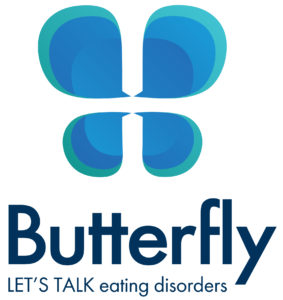
In Australia, approximately one million people (4%) are living with an eating disorder in any given year1. To add to this, approximately a third of adolescents in Australia engage in disordered eating behaviours within any given year2. Unfortunately, eating disorders often become severe before being treated, complicating recovery.
Digital resources can play a useful role in the identification and early intervention of disordered eating behaviours. Digital tools can assist people concerned about themselves or someone else to recognise what could be going on and to identify when to seek help. Similarly, health professionals can use digital screening tools when a patient demonstrates risk factors for or first shows signs of disordered eating. This can assist in confirming a diagnosis as part of a complete assessment process or assist with monitoring client progress over time.
There are also a number of digital symptom management and wellbeing tools that could be appropriate for early intervention with individuals or their families alongside care from a health professional. Digital mental health services can also offer education and support, reducing the isolation that can plague people living with an eating disorder and their support people. Furthermore, online counselling and moderated peer support forums offer a confidential, safe, and supportive space for individuals to discuss their struggles and begin their journey towards seeking help.
While these digital tools offer many benefits, it’s important to use them as part of a comprehensive care plan that includes monitoring and support from a health professional.
Screening and Referral
Screening and referral tools play a crucial role in helping people evaluate their risk of developing eating disorders. Designed to identify potential concerns based on user responses, these tools serve as an initial step in recognising the need for professional intervention. They can operate independently, offering users a self-guided assessment, or be used in conjunction with consultations from health professionals.
Inside Out Institute for Eating Disorders
https://insideoutinstitute.org.au/#gsc.tab=0
The Inside Out Institute for Eating Disorders is an Australian research and clinical institute dedicated to improving the lives of people affected by eating disorders. Their website includes information and guidance for people experiencing an eating disorder, people concerned about someone else, health professionals, and researchers to help with identification, assessment, treatment, and support.
Feed Your Instinct
https://feedyourinstinct.com.au/
Feed Your Instinct (FYI) is an online tool developed by the Victorian Centre for Excellence in Eating Disorders (CEED), providing information to assist in the recognition and understanding of eating disorders and/or body image problems. The program is designed for parents of children and young people experiencing eating and body image problems, highlighting common warning signs, useful information, guidance on how to help and options for further support. By guiding users through four modules on eating, wellbeing, thinking and feeling, they aim to help parents decide if they need to be concerned about their child, understand what is happening and what to do next.
Symptom Management and Wellbeing Tools
There are a number of different digital tools which can be used to address aspects of disordered eating. Early intervention tools can help people with disordered eating to gain understanding and promote help seeking. There are also tools for families to develop skills around mealtimes to encourage recovery.
Reach Out and Recover (ROAR)
https://reachoutandrecover.com.au/
Reach Out and Recover (ROAR) is an early intervention resource for eating disorders or body concerns. They aim to assist adults to identify problems with eating and body image issues, promoting appropriate help-seeking, and providing guidance on how to seek the right support. Combining health professionals’ expertise and research insights, ROAR includes interactive tools to help users understand more, and get a better sense of the impact of these problems and where to seek help.

The Shared Table
https://edqsharedtable.com.au/
The Shared Table is a support person training program developed by Eating Disorders Queensland providing free online supportive mental therapy training for people who support someone with an eating disorder. The program includes information about the stages of meal support, communication skills, setting rules, boundaries and non-negotiables, and the role of nutrition in recovery. The Shared Table is designed to be used in addition to traditional treatment.
Peer Support and Counselling
Counselling can assist people living with an eating disorder to work through a particular issue. Peer support enables connection to other young people who are going through eating disorder recovery in a safe and moderated way, to share experiences, challenges and successes.

Butterfly Foundation
Counselling: https://butterfly.org.au/get-support/helpline/ 1800 33 4673
Peer support: https://butterfly.org.au/get-support/support-groups/recoverysupportgroups/
Butterfly Foundation is a free, accessible support service for anyone needing guidance with an eating disorder or body image concerns. Their services include counselling, referrals, support, psycho-education, and guidance via telephone, web chat, email, and online support groups. Through the Butterfly Foundation website individuals, families and carers can access information about different types of eating disorders, recovery, treatment, risks, and warning signs, who it affects, and more.

ReachOut
Information – Eating disorders: https://au.reachout.com/mental-health-issues/eating-disorders
Peer support – Exercise and eating well: https://forums.au.reachout.com/t5/tag/Exercise%20and%20eating%20well/tg-p
ReachOut is an online mental health service for young Australians and their parents to help young people be well and stay well. They provide mental health support and information on a range of mental health and wellbeing topics including self-help information, peer support, and referral tools. Their website provides information and support for eating disorders, including personal stories, support services, types of eating disorders, symptoms, treatment, and recovery.

SANE Australia
Information – Eating disorders: https://www.sane.org/information-and-resources/facts-and-guides/eating-disorders
Peer support – Eating disorders: https://saneforums.org/t5/tag/eating%20disorders/tg-p/category-id/lived-experience-forum
SANE Australia is a national mental health service for people affected by complex mental health issues through support, research, and advocacy. They provide straightforward and concise information on treatment and self-help, and moderated forums for peer-to-peer support for people living with mental illness issues, their family, friends, and carers.
Information
There are numerous online resources that offer educational material on eating disorders and mental health. These can be valuable for both individuals and their loved ones to better understand disordered eating and find strategies to support recovery.

Kids Helpline
Teens – Eating disorders: https://kidshelpline.com.au/teens/issues/eating-disorders
Young Adults – Eating disorders: https://kidshelpline.com.au/young-adults/issues/eating-disorders
Kids – Eating disorders: https://kidshelpline.com.au/kids/issues/eating-disorders
1800 55 1800
Kids Helpline is a free, confidential counselling service for young people aged 5 to 25 years and their parents. They provide counselling via phone, email, and over the web as well as providing information and guidance on a range of issues relevant to young people. Their website provides information and support for teens aged 13 to 17, and eating disorders, including types of eating disorders, how to identify an unhealthy relationship with food, recognising the signs and symptoms, and where to access help. The Kids Helpline website also includes information on how eating disorders affect young adults aged 18 to 25 and kids aged 5 to 12.

Headspace
Understanding disordered eating and eating disorders: https://headspace.org.au/explore-topics/for-young-people/eating-disorders/
Headspace is a national youth mental health foundation providing support and information to young Australians with mental health, physical health, drug use, alcohol, work and study concerns. Their website provides information on understanding disordered eating including information about types of disordered eating, the signs and symptoms, related mental health problems, self-help tips for recovery and where to get help. They also provide a downloadable factsheet about disordered eating and eating disorders.

Raising Children Network
Eating disorders in older children and teenagers: https://raisingchildren.net.au/pre-teens/mental-health-physical-health/mental-health-disorders/eating-disorders
Raising Children Network is a free, reliable, up-to-date information resource, funded by the Australian Government, for Australian parents. Their website includes parenting videos, articles, apps, and information guides for busy families and parents on a range of topics including eating disorders. They provide information about eating disorders in older children and teenagers aged 9 to 18 including what are eating disorders, how to speak with children about disordered eating, getting help, support services, and why teenagers can be at risk of disordered eating.
More information for health professionals
If you would like to learn more about how digital resources can be integrated into eating disorder treatment, there are a number of resources which can help.
Black Dog Institute Webinar
‘‘Screening and Early Intervention for people living with Eating Disorders’’
When: Online, Thurs 9 May 1pm AEST and Thurs 9 May 8pm AEST
RACGP CPD Approved Activity – 1 CPD hour – Educational Activities
Eating disorders have low rates of early detection and intervention when both are needed for the best outcomes. The evidence base shows that a multi-disciplinary team including the patient’s GP is needed to facilitate recovery. This seminar will explore the role of the GP within these teams and provide information on available supports – introducing the new InsideOut GP Hub & Tools which will compliment and support GPs in their role which includes early identification, intervention and management.
eMHPrac Factsheet
This factsheet provides brief information about how digital mental health resources can help people affected by eating disorders or body image issues and suggests a range of suitable Australian, evidence-based, free, and low-cost digital mental health resources.
The types of digital resources suggested include:
- Free phone and online counselling services, including crisis services.
- Online programs and websites providing up-to-date information and targeted treatment for eating disorders.
1 Deloitte Access Economics. Paying the price: The economic and social impact of eating disorders in Australia. Australia: Deloitte Access Economics; 2012.
2 Sparti C, Santomauro D, Cruwys T, Burgess P, Harris M. Disordered eating among Australian adolescents: prevalence, functioning, and help received. Int J Eat Disord. 2019;52(3):246-54.







